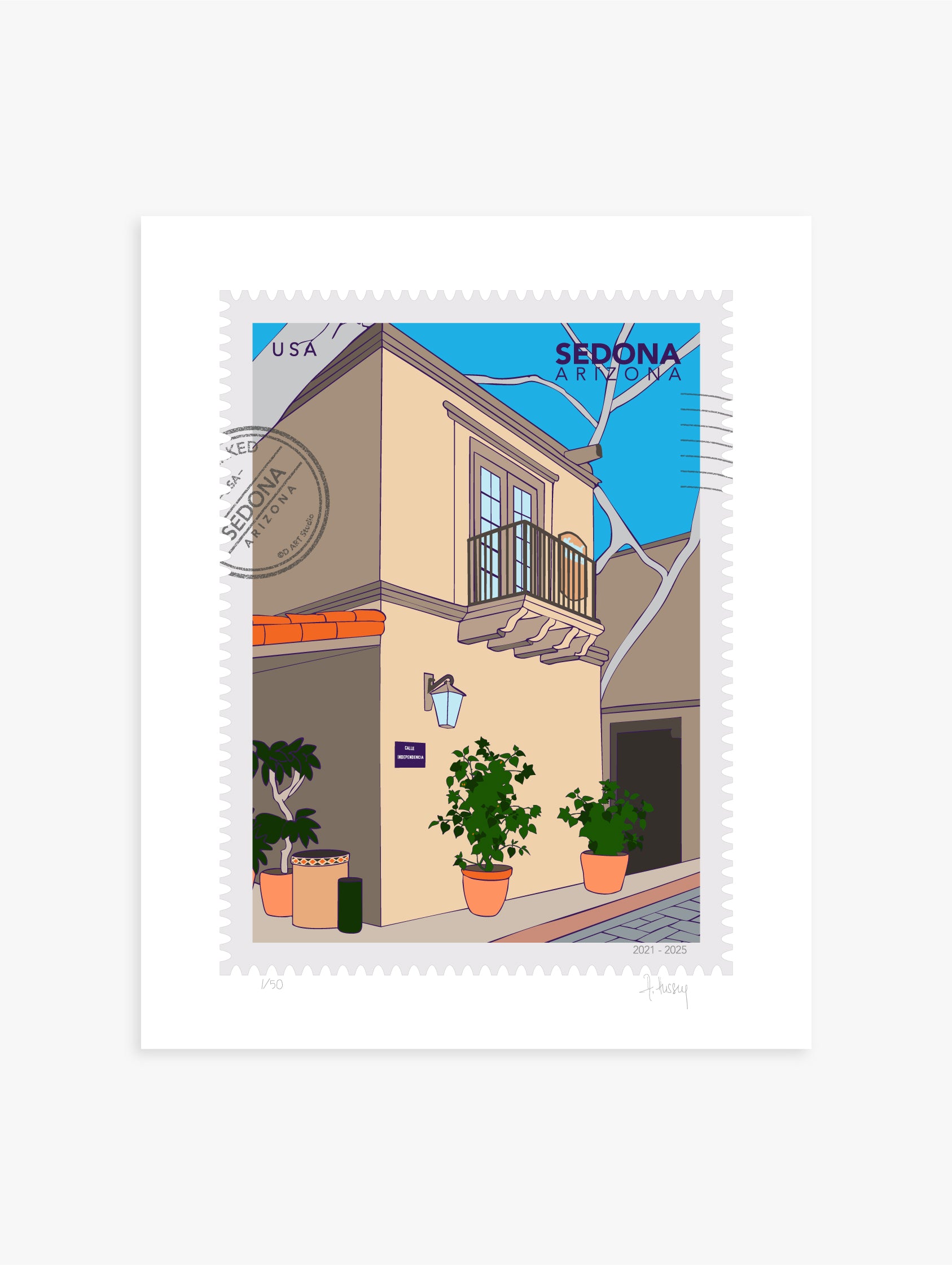Sedona: red rocks, Rosie poodle, and Tlaquepaque
We arrived in Sedona early; the car rounded a bend, and suddenly the red-rock monoliths stood like ancient sentinels under that wide Arizona sky. Their layered cliffs glowed russet in the morning sun, and the air was crisp, dry, high-desert fresh; a breath you could feel deep in your lungs, as if the land itself exhaled.
We had our faithful old poodle Rosie with us, her pink bow fluttering in the breeze.
As we drove in, the contrast struck us: blue sky so clear it seemed unreal, red rock so vivid it seemed alive. According to Visit Sedona, the official tourism organization and visitor resource for the city, this is “red-rock country,” featuring sheer cliffs, mesas, and spires. Approximately 20 square miles set against a turquoise-blue sky. The desert light shifts through ochre, terra-cotta, and purple as the sun climbs or sets. We parked near town and stepped out into that light: a gentle breeze stirring sage and juniper, the scent of sun-warmed stone underfoot.
Sedona has long been said to hold a mystical kind of energy: many people believe Sedona sits on a network of natural energy centers, specific spots in the red-rock landscape where the earth’s spiritual or magnetic energy is especially strong. These are called vortexes (sometimes “vortices”), and locals and visitors describe them as places where you can actually feel the energy in the air: tingling skin, a rush of calm, or a heightened sense of awareness.

After you pass the red rock grandeur and the blue sky stretches wide, you’re in for a surprise: Tlaquepaque. Tlaquepaque is the arts village tucked beneath sycamore trees on the banks of Oak Creek. Its vine-covered stucco walls, cobblestone walkways, and arched entrance whispered old-world charm. Wandering its shaded courtyards, fountains splashing, lanterns dangling overhead, we felt wrapped in calm. Time slowed.
Tlaquepaque feels like a small European town tucked into the desert. Shops and galleries lined every vista: artisan glass, sculpted metalwork, painted canvases, handcrafted jewelry. According to its history, Tlaquepaque was conceived in the early 1970s as an arts village inspired by Old Mexico, meant to be “the best of everything.” We delighted in its architecture: layered balconies, carved doors, shaded patios, the living art of place rather than just objects for sale.
Randy carried Rosie in his arms that afternoon, her pink bow bright in the shade. The scent of coffee and warm pastry drifted over stone paths. We paused there, letting the beauty of the place wash gently over us.
Before lunch, we walked along the creek, the red rocks framing the village like a painting. The afternoon sun filtered through sycamore leaves, casting patterned shadows on the walkways. We found a quiet street that matched the idea for my next large postage-stamp wall print: an image from one of Tlaquepaque’s streets, perfect in composition, color, and feel.
As sunset approached, the red cliffs beyond town glowed like embers. We sat on a low wall overlooking the creek and watched the color deepen: burnt orange, then dusky rose, then purple. The air cooled, desert wind pulling in faint moisture, bringing relief and softness. We felt an ache of gratitude for that walk, that afternoon, that passage of time with our dog. People smiled at Rosie as we passed, and she seemed to take in every sound, every scent, with quiet delight.

Sedona is rare in its layering of beauty, light, calm, and movement. The geology tells one story: ancient seas, desert dunes, iron-rich sand turning rust red. But the human story adds texture: artists, seekers, travelers, families, dogs with pink bows exploring old villages. Tlaquepaque adds humanity and artistry to the natural cathedral of rock outside its door.
The place feels alive with both quiet and presence. Your senses are engaged: the crunch of stone, the rustle of leaves, the water’s soft murmuring, the glow of stucco walls, the relief of shaded courtyards. The air is full, not heavy, with possibility and peace.
Before heading home, we decided to have dinner right there, in Tlaquepaque, drawn by the glow of string lights flickering across the courtyards. We hadn’t made a reservation, an oversight, as we quickly learned, but people were kind and welcoming, doing their best to squeeze us in. After a short wait, we were seated at René, one of Sedona’s long-loved fine dining spots known for its French-inspired Southwestern cuisine and soft candlelight under the sycamores. The food was exceptional: delicate flavors, a touch of desert herbs, and that unmistakable Sedona air drifting through the open archways. It felt like the day had come full circle: red rocks, art, kindness, and now a quiet meal tucked into the village that had surprised us at the end of the road. If you go, make a reservation: it’s worth planning ahead.
I decided to turn that afternoon into a large postage stamp wall print: Courtyard Light No.1. Collectors, travelers at heart, and anyone who uses their walls to hold memories know our oversized stamps are more than decoration; they’re keepsakes.
They say: “We stood here. We felt this.”






